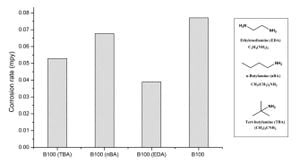Kaja Kallas, the European Union's top diplomat, emphatically urged EU member states to substantially increase their defense spending, emphasizing the urgent need to respond to the existential threat posed by Russia. Speaking at the European Defense Agency’s annual conference held on January 22, 2024, Kallas aligned her remarks with the demands of former U.S. President Donald Trump, who has been vocal about NATO countries needing to boost their defense investments.
Kallas stated, "President Trump is right to say we don’t spend enough. It’s time to invest," underscoring the need for the EU to shoulder more responsibility concerning its security. Her remarks come at a pivotal time as Russia's aggressive military posture continues to loom large over Europe. The security situation has raised alarms, with many EU leaders echoing the necessity for action since Russia’s full-scale invasion of Ukraine commenced nearly two years ago.
Currently, the average defense spending among EU member states stands at 1.9% of GDP, which contrasts sharply with Russia’s 9%. Such disparities highlight the potential risks should Europe fail to adequately prepare for future conflicts. Kallas cautioned, "Many of our national intelligence agencies are giving us the information there could be tests of our readiness as soon as three to five years from now." This assertion reflects the seriousness of the situation and the potential for escalated military tensions.
The EU's defense spending calls have gained renewed urgency following Trump's insistence for NATO allies to shift their defense budgets from the current target of 2% to 5% of GDP. This alarming shift could necessitate substantial adjustments from EU countries, particularly those still struggling to meet the original NATO benchmark. Polish Prime Minister Donald Tusk supported Kallas's assertions, stating, "If Europe is to survive, it needs to be armed," reinforcing the idea of united action among EU nations.
Kallas also pointed out the problematic nature of Europe’s historical approach to defense, noting, "Weakness invites aggression." This rhetoric emphasizes the need for European nations to take stock of their military capabilities and adequately invest to prevent complacency and vulnerability. Kallas showcased the example of Russia's military capabilities, capable of outproducing the combined arms of the EU nations. "Russia can produce more weapons and ammunition within three months than the EU can collectively over twelve months," she warned.
The urgency of Kallas’s address mirrors the growing concern among EU leaders. Following the increasingly aggressive maneuvers by Russia, there have been consistent calls for what many have termed a "wake-up call" on defense preparedness across the continent. Kallas declared, "Russia poses an existential threat to our security today, tomorrow, and for as long as we under-invest in our defense,” highlighting the potential fallout from inadequate military readiness.
Kallas is not alone; other European leaders are also advocating for increased defense expenditures. German Chancellor Olaf Scholz has previously labeled Trump’s 5% spending demand as too costly but acknowledged the necessity for Europe to reduce its dependence on the United States for security. French President Emmanuel Macron’s contributions reflect widespread sentiment across Europe; he has stressed the need for EU nations to bolster their military spending, independently from American investments, to secure their future.
Looking to the future, Kallas indicated strong support for developing EU defense capabilities, stating, "We need investment from member states and the private sector, but also from the common European budget. We must spend more than 1%." This sentiment resonates particularly with nations like Lithuania, which plans to raise its defense spending to between 5% and 6% of GDP by 2026 to counter the threat from Russia.
Germany and Spain, among other significant economies, still lag when it pertains to achieving NATO’s targeted defense spending. Kallas’s remarks resonate with the idea of collective security, stating, "We do not need a European army. We need 27 European armies capable of effectively working together to deter our rivals and defend Europe." This collective capability framework promises to strengthen Europe’s self-defense and has become increasingly relevant considering the current geopolitical climate.
Beyond immediate investments, Kallas's address suggested fostering stronger ties with the UK, referring to it as a "key partner" for Europe’s security efforts. The goal is to develop mutually beneficial security arrangements, which should naturally progress to the establishment of new agreements or collaborations focusing on defense, as the continent braces for potential hostilities.
Kallas’s clarion call is representative of broader European anxieties concerning security and military readiness. It highlights the need for immediate action and cooperation as nations prepare for what could be a tumultuous future. With Russia's war on Ukraine nearing its third anniversary, the message from Kallas is clear: Europe cannot afford to delay strengthening its defenses any longer. Failure to act decisively could leave it vulnerable to the growing threats from Russia and beyond.



